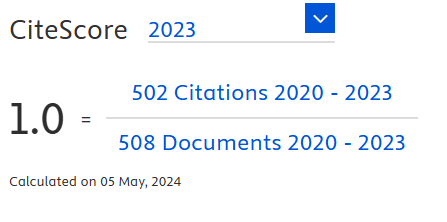Optimized in vitro micropropagation and microtuber production in potato (Solanum tuberosum L.) through apical buds using hormone regulation and tissue culture techniques
DOI:
https://doi.org/10.18006/2025.13(1).86.96Keywords:
Benzylaminopurine (BAP), Gibberellic acid (GA3), In vitro organogenesis, Micropropagation, Hormone optimization, Microtuber productionAbstract
Potato is an essential crop worldwide, and optimizing micropropagation techniques is important for enhancing germplasm conservation and large-scale production. This study focuses on the in vitro propagation of two potato varieties, Agata and Fianna, emphasizing optimizing sterilization protocols, shoot induction, rooting, and microtuber production. Apical buds from healthy, disease-free plants were selected as explants. These buds were surface-sterilized using 70% ethanol and sodium hypochlorite (NaOCl) with Tween-20. The explants were excised from tuber sprouts and cultured on Murashige and Skoog (MS) medium supplemented with various concentrations of plant growth regulators, including benzylaminopurine (BAP) at 0.10–0.40 mg/L, gibberellic acid (GA3) at 0.20–1.00 mg/L, and naphthalene acetic acid (NAA) at 0.01 and 0.04 mg/L to promote root development. The study also explored the effects of these hormonal treatments on shoot induction, proliferation, and rooting. Significant differences were observed between the two varieties regarding oxidation, contamination, and aseptic conditions, with Fianna demonstrating better resistance to oxidation and contamination than Agata. Shoot multiplication was most efficient with BAP concentrations of 0.40 mg/L for Fianna and 0.30 mg/L for Agata. Root induction was maximized with higher sucrose concentrations (110 g/L) and GA3 (1.00 mg/L) for Agata, while moderate concentrations of these compounds produced optimal results for Fianna. Microtuber formation was most successful with moderate sucrose (80–100 g/L) and GA3 (0.25–0.75 mg/L) concentrations. This study provides valuable insights into optimizing tissue culture practices for potato propagation, enhancing both microtuber production and the overall efficiency of potato production systems.
References
Abu Zeid, S. M., Soliman, H. I. A., & Metwali, E. M. R. (2022). In vitro evaluation of some high yield potato (Solanum tuberosum L.) cultivars under imposition of salinity at the cellular and organ levels. Saudi Journal of Biological Sciences, 29(4), 2541-2551. https://doi.org/10.1016/j.sjbs.2021.12.040. DOI: https://doi.org/10.1016/j.sjbs.2021.12.040
Aksoy, E., Orozco, J. M., López, J., Yildirim, N., & Acar, T. (2021). Recent advances in potato (Solanum tuberosum L.) breeding. In J. M. Al-Khayri, S. M. Jain, & D. V. Johnson (Eds.), Advances in Plant Breeding Strategies: Vegetable Crops (pp. 169-203). Springer, Cham. https://doi.org/10.1007/978-3-030-66965-2_10. DOI: https://doi.org/10.1007/978-3-030-66965-2_10
Amghar, I., Diria, G., Boumlik, I., El Mouden, E. H., Khouya, E., El Modafar, C., & Ait Barka, E. (2021). An efficient regeneration pathway through adventitious organogenesis for the endangered Argania spinosa (L.) Skeels. Vegetos, 34(3), 355–367. https://doi.org/10.1007/s42535-021-00208-y. DOI: https://doi.org/10.1007/s42535-021-00208-y
Anjum, M. A., & Ali, H. (2004). Effect of culture medium on direct organogenesis from different explants of various potato genotypes. Biotechnology, 10, 187-193. https://doi.org/10.3923/biotech.2004.187.193. DOI: https://doi.org/10.3923/biotech.2004.187.193
Bettoni, J. C., Wang, M. R., & Wang, Q. C. (2024). In vitro regeneration, micropropagation and germplasm conservation of horticultural plants. Horticulturae, 10(1), 45. https://doi.org/10.3390/horticulturae10010045. DOI: https://doi.org/10.3390/horticulturae10010045
Bustos, R., & Carrillo, L. (2017). Genetic and environmental factors affecting the differentiation of apical meristems into various organ systems in potato (Solanum tuberosum L.). Journal of Plant Physiology, 216, 58-67. https://doi.org/10.1016/j.jplph.2017.07.008. DOI: https://doi.org/10.1016/j.jplph.2017.07.008
Coleman, M., Waugh, R., & Powell, W. (1990). Genetical analysis of in vitro cell and tissue culture response in potato. Plant Cell, Tissue and Organ Culture, 23, 181-186. https://doi.org/10.1007/BF00034429. DOI: https://doi.org/10.1007/BF00034429
De Koeyer, D., & Harding, K. (2019). The potato tuber: From plant to table. In J. M. Bradeen & S. M. De Jong (Eds.), Genetics and Genomics of Potato (pp. 261-278). Springer, Cham. https://doi.org/10.1007/978-3-030-23134-3_12.
Develi, B. E., & Miler, N. (2023). Impact of light quality on in vitro potato microtuber formation. International Journal of Horticultural Science and Technology, 10(special issue, light in horticulture), 89-100. https://doi.org/10.22059/ijhst.2023.353476.613.
Dobránszki, J., Hidvégi, N., Gulyás, A., & Teixeira da Silva, J. A. (2019). mRNA transcription profile of potato (Solanum tuberosum L.) exposed to ultrasound during different stages of in vitro plantlet development. Plant Molecular Biology, 100(4-5), 511-525. https://doi.org/10.1007/s11103-019-00876-0. DOI: https://doi.org/10.1007/s11103-019-00876-0
Dolničar, P. (2021). Importance of potato as a crop and practical approaches to potato breeding. In D. Dobnik, K. Gruden, Ž. Ramšak, & A. Coll (Eds.), Solanum tuberosum: Methods in Molecular Biology (Vol. 2354, pp. 1-17). Humana, New York, NY. https://doi.org/10.1007/978-1-0716-1609-3_1. DOI: https://doi.org/10.1007/978-1-0716-1609-3_1
Forest, M. J., Ojeda Zacarías, M. D. C., Saldaña, H. L., Alvarado, R. E. V., Sáenz, E. O., & Cham, A. K. (2023). The impact of elicitation on potato (Solanum tuberosum L.) production, enzymatic and antioxidant activity in Nuevo León, Mexico. Journal of Experimental Biology and Agricultural Sciences, 11(3), 572–580. https://doi.org/10.18006/2023.11(3).572.580. DOI: https://doi.org/10.18006/2023.11(3).572.580
García, J., & López, E. (2022). In vitro propagation and establishment of nodal segments in guava (Psidium guajava L.). Journal of Plant Biotechnology and Microbiology, 9(1), 45-52. https://doi.org/10.5897/JPBM2021.0076.
García-García, J. A., Azofeifa-Bolaños, J. B., Solano-Campos, F., & Orozco-Rodríguez, R. (2019). Effect of two cytokinins and a growth inhibitor on the in vitro tuberization of two genotypes of Solanum tuberosum L. cvs. Atlantic and Alpha. Uniciencia, 33(2), 1-12. https://dx.doi.org/10.15359/ru.33-2.1. DOI: https://doi.org/10.15359/ru.33-2.1
García-González, R., & Quiroz, K. A. (2018). Impact of plant growth regulators on shoot regeneration from potato (Solanum tuberosum L.) explants. Plant Cell, Tissue and Organ Culture (PCTOC), 134(3), 439-451. https://doi.org/10.1007/s11240-018-1435-2.
Gautam, S., Solis-Gracia, N., Teale, M. K., Mandadi, K., da Silva, J. A., & Vales, M. I. (2021). Development of an in vitro microtuberization and temporary immersion bioreactor system to evaluate heat stress tolerance in potatoes (Solanum tuberosum L.). Frontiers in Plant Science, 12, 700328. https://doi.org/10.3389/fpls.2021.700328. DOI: https://doi.org/10.3389/fpls.2021.700328
Hasnain, A., Naqvi, S. A. H., Ayesha, S. I., Khalid, F., Ellahi, M., et al. (2022). Plants in vitro propagation with its applications in food, pharmaceuticals, and cosmetic industries; current scenario and future approaches. Frontiers in Plant Science, 13, 1009395. https://doi.org/10.3389/fpls.2022.1009395. DOI: https://doi.org/10.3389/fpls.2022.1009395
Heuberger, A. L., Joshi, J. R., & Toulabi, S. (2022). Potatoes. In J. P. Miller & C. Van Buiten (Eds.), Superfoods: Food and Health (pp. 201-220). Springer, Cham. https://doi.org/10.1007/978-3-030-93240-4_13. DOI: https://doi.org/10.1007/978-3-030-93240-4_13
Hossain, M. S., Hossain, M. M., Hossain, T., Haque, M. M., Zakaria, M., & Sarkar, M. D. (2017). Varietal performance of potato on induction and development of microtuber in response to sucrose. Annals of Agricultural Sciences, 62(1), 75–81. https://doi.org/10.1016/j.aoas.2017.05.002. DOI: https://doi.org/10.1016/j.aoas.2017.05.002
Hussain, S., Khan, A., Ahmad, N., Shabbir, G., Aziz, M. A., Rauf, M. A., & Riaz, M. (2023). In vitro micropropagation and micro-tuberization potential of selected potato (Solanum tuberosum L.) varieties. Plant Cell, Tissue and Organ Culture (PCTOC), 135(2), 289-302. https://doi.org/10.1007/s11240-023-02125-8.
Kumlay, A. M. (2014). Combination of the auxins NAA, IBA, and IAA with GA3 improves the commercial seed-tuber production of potato (Solanum tuberosum L.) under in vitro conditions. Biomed Research International, 2014, 439259. https://doi.org/10.1155/2014/439259. DOI: https://doi.org/10.1155/2014/439259
Mohamed, A. E. S., & Girgis, N. D. (2023). Factors affecting in vitro tuberization of potato. Bulletin of the National Research Centre, 47, 80. https://doi.org/10.1186/s42269-023-00720-6. DOI: https://doi.org/10.1186/s42269-023-01056-3
Murashige, T., & Skoog, F. (1962). A revised medium for rapid growth and bioassay with tobacco tissue cultures. Physiologia Plantarum, 15, 473-494. https://doi.org/10.1111/j.1399-3054.1962.tb08052.x. DOI: https://doi.org/10.1111/j.1399-3054.1962.tb08052.x
Nagy, A. M., Oros, P., Cătană, C., Antofie, M. M., & Sand, C. S. (2023). In vitro cultivation of purple-fleshed potato varieties: Insights into their growth and development. Horticulturae, 9(4), 425. https://doi.org/10.3390/horticulturae9040425. DOI: https://doi.org/10.3390/horticulturae9040425
Navarro, C., Abelenda, J. A., Cruz-Oró, E., & Cuéllar, C. A. (2015). Control of potato tuberization by StSP6A. Nature, 482(7384), 232-235. https://doi.org/10.1038/nature10703. DOI: https://doi.org/10.1038/nature10703
O'Brien, L., & McCleary, M. (2023). Advances in vegetative propagation techniques for potato: A review. Potato Research, 66(1), 1-18. https://doi.org/10.1007/s11540-022-09479-3.
Pasternak, T. P., & Steinmacher, D. (2024). Plant growth regulation in cell and tissue culture in vitro. Plants, 13(2), 327. https://doi.org/10.3390/plants13020327. DOI: https://doi.org/10.3390/plants13020327
Permadi, N., Akbari, S. I., Prismantoro, D., Indriyani, N. N., Nurzaman, M., Alhasnawi, A. N., Doni, F., & Julaeha, E. (2024). Traditional and next-generation methods for browning control in plant tissue culture: Current insights and future directions. Current Plant Biology, 38, 100339. https://doi.org/10.1016/j.cpb.2024.100339. DOI: https://doi.org/10.1016/j.cpb.2024.100339
Ritonga, F. N., Zhou, D., Zhang, Y., Song, R., Li, C., Li, J., & Gao, J. (2023). The roles of gibberellins in regulating leaf development. Plants (Basel), 12(6), 1243. https://doi.org/10.3390/plants12061243. DOI: https://doi.org/10.3390/plants12061243
SIAP. (2024). Nuevo León Agri-Food Infographic. [Online]. Retrieved from https://www.gob.mx/siap/acciones-y-programas/produccion-agricola-33119.
Šmeringai, J., Schrumpfová, P. P., & Pernisová, M. (2023). Cytokinins – regulators of de novo shoot organogenesis. Frontiers in Plant Science, 14. https://doi.org/10.3389/fpls.2023.1239133. DOI: https://doi.org/10.3389/fpls.2023.1239133
Smet, W., & Beeckman, T. (2019). Organogenesis in plants: Initiation and elaboration of leaves. Trends in Plant Science, 24(6), 512-526. https://doi.org/10.1016/j.tplants.2019.03.004. DOI: https://doi.org/10.1016/j.tplants.2019.03.004
Smith, A., Jones, B., & Johnson, C. (2023). In vitro culture of potato (Solanum tuberosum L.): Recent advances and applications. Plant Cell Reports, 42(5), 701-715. https://doi.org/10.1007/s00299-023-02468-z.
Sota, V., Bekheet, S., & Kongjika, E. (2020). Effect of growth regulators on micropropagation and in vitro tuberization of Solanum tuberosum L. cv. Vermosh. South Western Journal of Horticulture, Biology and Environment, 11(2), 67-81. https://doi.org/10.17660/swjhbe.2020.11.2.e20106.
Srivastava, A. K., Diengdoh, L. C., Rai, R., Bag, T. K., & Singh, B. P. (2012). In vitro micropropagation and micro-tuberization potential of selected potato varieties. Indian Journal of Hill Farming, 25(2), 14-17. Retrieved from https://kiran.nic.in/pdf/ IJHF/Vol25_2/In_Vitro_Micropropagation.pdf.
Thomas, T. D. (2008). The role of activated charcoal in plant tissue culture. Biotechnology Advances, 26(6), 618-631. https://doi.org/10.1016/j.biotechadv.2008.08.003. DOI: https://doi.org/10.1016/j.biotechadv.2008.08.003
Vázquez-Martínez, F. F., González-Aguilar, G. A., Hernández-López, M., Martínez-Sánchez, L. M., & Torres-Pacheco, I. (2022). In vitro propagation and optimization of culture conditions for enhanced shoot proliferation in potato cultivars. Journal of Plant Growth Regulation, 41(3), 479-489. https://doi.org/10.1007/ s00344-022-10755-4.
Vlahova, M., Kondakova, V., & Atanassov, A. (2022). Role of apical dominance in clonal propagation of potato (Solanum tuberosum L.). Bulgarian Journal of Agricultural Science, 28(1), 45-52. https://doi.org/10.3235/BJAS220712.
Yildiz, M., Ozcan, S. F., Kahramanogullari, T., & Tuna, E. (2012). Title of the article. The Natural Products Journal, 2(4), 328-331. https://doi.org/10.2174/2210315511202040328. DOI: https://doi.org/10.2174/2210315511202040328
Zhang, Z., Zhou, W., & Li, H. (2005). The role of GA, IAA, and BAP in the regulation of in vitro shoot growth and microtuberization in potato. Acta Physiologiae Plantarum, 27(3), 363–369. https://doi.org/10.1007/s11738-005-0013-7. DOI: https://doi.org/10.1007/s11738-005-0013-7
Downloads
Published
How to Cite
License
Copyright (c) 2025 Journal of Experimental Biology and Agricultural Sciences

This work is licensed under a Creative Commons Attribution-NonCommercial 4.0 International License.












